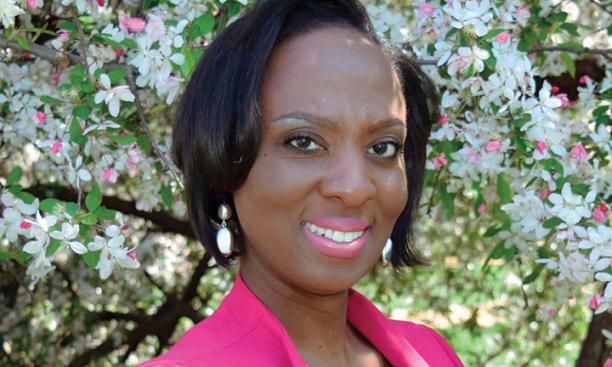
A year after a University task force offered an ambitious set of proposals to make the campus more inclusive, Princeton officials say substantial progress has been made but that much remains to be done.
Perhaps the most visible step was the University’s announcement last month of the hiring of its first dean for diversity and inclusion. LaTanya Buck, the founding director of the Center for Diversity and Inclusion at Washington University in St. Louis, will begin her new position in August. Buck said she plans to create a team of student representatives to ensure that she will be “keeping a pulse on campus and learning about the needs, experiences, and expectations of students.”
One of Buck’s first responsibilities will be to decide whether to strengthen the focus of the Carl A. Fields Center for Equality and Cultural Understanding as a “welcoming home base” for students of color, as the task force suggested. In the past year the University has expanded the center’s hours and assigned rooms for use by four student cultural-affinity groups. The building’s interior will be renovated this summer, and the center will host a new diversity peer-educators program that is scheduled to begin in the fall.
The task force was formed after about 150 students attended a December 2014 meeting of the Council of the Princeton University Community to press for action on diversity-related issues. The task force was charged with improving the student experience, enhancing academic offerings, and changing how students, faculty, and staff members address bias and discrimination.
Michele Minter, vice provost for institutional equity and diversity, said she believes that Princeton has acted on all the recommendations that could be accomplished in a year’s time. “We are making good progress, but we still have a lot of work to do,” Minter said. “I think we can be at the forefront of what a good, healthy, and diverse campus culture looks like.”
Following is the status of additional recommendations by the task force:
- Consider adding a course requirement for diversity and culture as part of the University’s distribution requirements. A task force on general education, formed as part of the University’s strategic-planning process, expects to make preliminary recommendations to the trustees in June, said Dean of the College Jill Dolan.
- Provide more opportunities for student dialogue about diversity and inclusion. This year, conversations
- have taken place in the residential colleges, through the Office of Religious Life, and over dinner between students and professors.
- Revise freshman orientation. Changes in the fall will include mandatory participation in Outdoor Action or Community Action, promoting a “sense of community values, ethics, and diversity and cultural difference,” Dolan said.
- Expand curricular offerings related to diversity and identity. Through the 250th Anniversary Fund for Innovation in Undergraduate Education, faculty members will teach five new courses next year on topics that include how urban diversity has been viewed in the Americas and an examination of the Trenton riots of 1968, focusing on the fatal shooting of a black college student by a white police officer. In addition, five postdocs will pursue research and teach courses in the areas of comparative cultures, race, ethnicity, gender and sexuality, and global health next year.
- Increase learning opportunities for faculty and instructors. The McGraw Center for Teaching and Learning began offering workshops on inclusive teaching strategies this semester; the first drew more than 30 professors and focused on how different types of high school learning experiences may affect the preparation of students for Princeton classes. Inclusive-teaching workshops have been added to orientation for graduate-student preceptors.
- Expand support for University centers and offices that serve “identity-based” groups on campus. Funding for a new program coordinator at the Women’s Center, two new positions at the Fields Center, and two new diversity-focused staff positions at the Graduate School has been approved.
In addition to issues raised by the task force, other initiatives are underway. Minter said she has seen greater interest by the faculty in areas relating to diversity and inclusion. At least seven departments have requested training or asked for assistance in putting together committees to look at their departmental climate.
Dean of the Faculty Deborah Prentice is organizing training to provide a senior faculty member in each department with the data and authority to play a larger role in faculty searches and attract a more diverse applicant pool.
A working group that is reviewing proposals for additional interest-based “living-learning” communities in the residential colleges, including a request by student activists for race-based affinity housing, hopes to makes its recommendations by June, Dolan said.
The University also announced in April that the trustees had approved the creation of a “pipeline” program to encourage students from underrepresented groups to pursue doctoral degrees and careers in academia. Minter said that while the program is still in its planning stages, the University hopes to bring talented undergraduates, mainly from other universities, to Princeton during the summer for research, mentoring, and insights into graduate school. The University hopes to begin the program during the summer of 2017.
“While there’s been some modest improvement in faculty diversity, it’s not enough, and it won’t be enough until we do something about the pipeline,” said Brent Henry ’69, vice chair of the University’s trustees. “If this lives up to our hopes, we could really become a leader in trying to figure out how to improve that pipeline.”
More information on the “Many Voices, One Future” efforts can be found at inclusive.princeton.edu.
